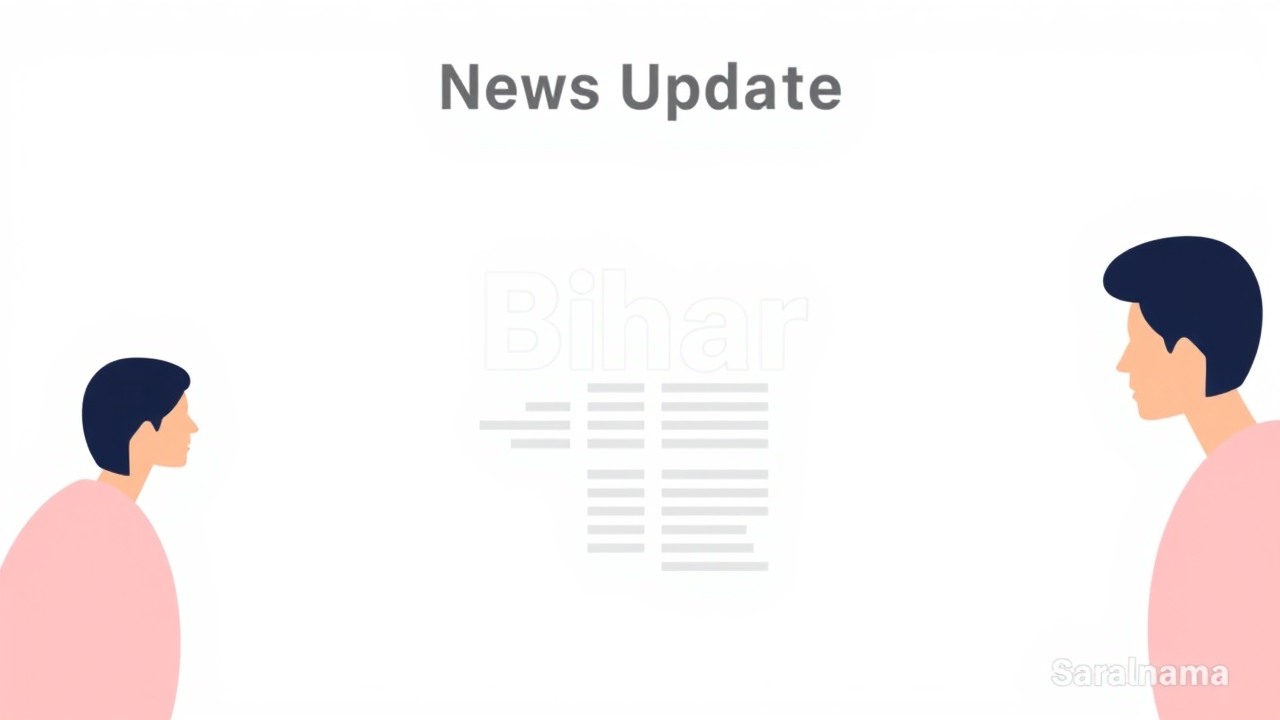A government hospital in Saharsa district faced severe disruption when laboratory technicians shut down the testing facility in protest. The demonstration left many patients stranded without essential medical tests for hours. The technicians were protesting against the alleged misbehavior of a colleague, demanding an investigation and appropriate action from hospital authorities. Several lab workers participated in the protest, including Ravindra Kumar, Ajay Kumar, Anand Kumar, Raju Kumar, Mohammad Arshad Rizvi, Mohammad Ismail, Abhishek Kumar Singh, Mukesh Kumar, Rajkumar, Dilip Rawat, Sanjay Kumar, Nitish Kumar, Manish Kumar, and Neeraj Kumar. Their grievance centered on lab technician Anant Kumar Agrawal, who they accused of causing delays in patient test reports and responding with abusive language when questioned. The protesters submitted complaints to both the hospital superintendent and the civil surgeon, seeking proper inquiry into the matter. The closure of the laboratory brought routine hospital services to a near standstill, affecting outpatient department operations. Patients who had already submitted blood and urine samples were unable to obtain their reports, leaving doctors unable to prescribe treatment. One patient from Goriyari village expressed frustration after waiting from morning until afternoon without receiving results despite providing samples two days earlier due to illness. Civil Surgeon Raman Kumar Jha acknowledged the situation and promised appropriate action following investigation.

Protest Disrupts Hospital Laboratory Services
On a recent day, laboratory technicians at Saharsa Sadar Hospital staged a protest that completely shut down the testing facility. The demonstration involved numerous lab workers who closed the laboratory doors, preventing any diagnostic work from being conducted. The protest was directed against Anant Kumar Agrawal, a fellow lab technician. Among those participating were Ravindra Kumar, Ajay Kumar, Anand Kumar, Raju Kumar, Mohammad Arshad Rizvi, Mohammad Ismail, Abhishek Kumar Singh, Mukesh Kumar, Rajkumar, Dilip Rawat, Sanjay Kumar, Nitish Kumar, Manish Kumar, and Neeraj Kumar. The technicians formally approached hospital authorities with their complaints, submitting demands to both the hospital superintendent and the civil surgeon. They insisted on a thorough investigation into the allegations and requested appropriate disciplinary measures. The sudden closure created chaos in the hospital as normal medical procedures came to a halt without the essential laboratory support needed for patient diagnosis and treatment.
Allegations of Delayed Reports and Misconduct
Ravindra Kumar, speaking on behalf of the protesting technicians, leveled serious accusations against Anant Kumar Agrawal. He claimed that Agrawal had been causing consistent delays in delivering patient test reports for several months. According to the protesters, when colleagues questioned these delays or raised concerns about the impact on patient care, Agrawal allegedly responded with inappropriate behavior. The technicians stated that he would resort to abusive language and disrespectful conduct when confronted about the delayed reports. This behavior created a hostile work environment and forced other staff members to face the anger and frustration of waiting patients. The protesting workers argued that they were being blamed and subjected to complaints from dissatisfied patients because of one individual's unprofessional conduct. They maintained that the situation had become intolerable and demanded immediate administrative intervention to address the persistent problem affecting both staff morale and patient care quality at the facility.
Patients Face Significant Inconvenience
The laboratory shutdown caused considerable hardship for patients seeking medical care at the hospital. Bishnadeo Sharma, a resident of Goriyari village, described his frustrating experience at the facility. He had been unwell for two days and came to the hospital seeking treatment. After consulting with a doctor, he received orders for laboratory tests. Sharma provided blood and urine samples as required but faced an unexpected wait. Despite submitting his samples, he could not obtain the test results. He waited from early morning until afternoon without receiving his reports. The patient expressed concern about how doctors could prescribe appropriate medication without knowing his test results. The laboratory closure effectively paralyzed the outpatient department, as physicians depend heavily on diagnostic reports to make informed treatment decisions. Multiple patients found themselves in similar situations, unable to complete their medical consultations and return home with proper prescriptions. The incident highlighted the critical role laboratory services play in routine hospital operations.
Hospital Administration Promises Investigation
In response to the protest and the disruption it caused, hospital authorities acknowledged the seriousness of the situation. Civil Surgeon Raman Kumar Jha stated that the complaints would be thoroughly examined and appropriate action would be taken following investigation. The administration recognized that the laboratory closure had severely impacted hospital services, particularly affecting the outpatient department's ability to function normally. The incident brought attention to internal workplace issues that can have far-reaching consequences for patient care. Hospital management faced the dual challenge of addressing staff grievances while ensuring minimal disruption to medical services. The protesters had made clear their expectation for swift administrative action against the accused technician. The situation underscored the importance of maintaining professional standards and timely service delivery in healthcare settings. As authorities promised to look into the matter, patients and staff alike awaited resolution of the conflict that had brought routine hospital operations to a standstill and left numerous people without access to essential diagnostic services.
Source: Link
